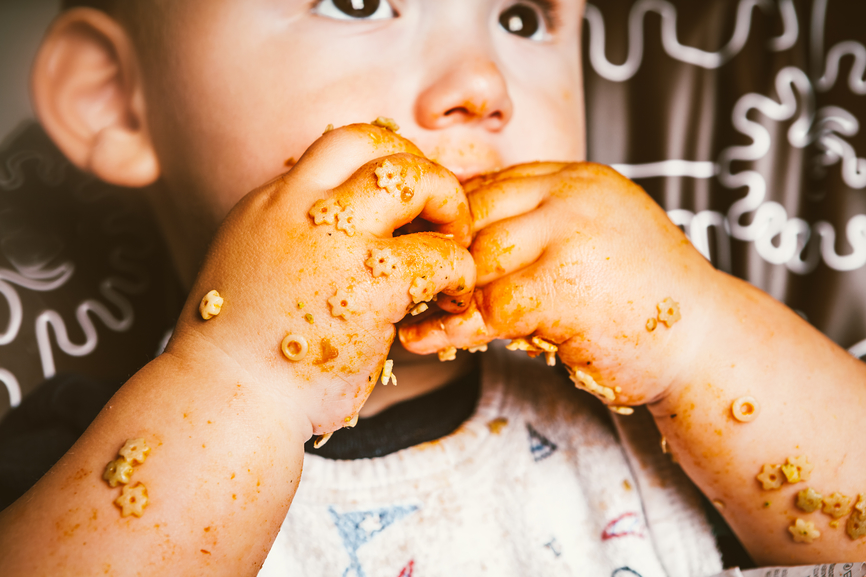The role of thinking in their lives is one of the big transitions thrust on new parents, particularly new mothers. In her old, pre-baby life, the mother was surrounded by other thinking adults and valued for her ability to think big, sophisticated thoughts.
After the birth, however, she spends most of her waking hours doing mundane, repetitive tasks with a creature who does not think at all like an adult.
This can be maddening, and it can be a wonderful opportunity. Your baby lives continually in the moment and is a compelling teacher of an alternative to constant thinking: mindfulness.
What is Mindfulness and Why Do I Want to Practice It?
Mindfulness is the full-sensory non-judgmental observation of life. We achieve this state easily when encountering something novel and powerful, such as a spectacular sunset, the first bite of a delicious dish, and romantic attraction.
Our bodies and minds are efficiency experts, however. When we are in familiar surroundings, doing familiar tasks, around familiar people, we slip out of mindfulness and on autopilot instead. We leave the present and drift into reviewing the past or imagining the future.
Consider what science is telling us. Neurologists have been proving in scientific research what mystics and meditators have always known: that mindfulness is associated with decreased stress and increased feelings of peace and connection. I’m sure you’ve also heard the statistic about how often babies laugh, compared to how often adults do (300:20 times per day). What’s different? Babies are in the moment; adults are judging it.
How often have you heard elders tell you that they “miss those days” [of intensive parenting] and to “enjoy every minute”? I think what they mean is that they wish they had been more present with their children, less preoccupied. They see now, with the benefit of hindsight, how magical those years can be when you pay attention.
Easy Mindfulness Moments for Busy Parents
Here are a few suggestions for incorporating mindfulness into your day.
Meals. It seems sometimes that feeding your children, whether from breast, bottle, or bowl, is just about all you do. Let it be a time – like the meditation bell or call to prayer – to be present, if just for five minutes, each time you sit down. Breastfeeding releases powerful feel-good hormones, creating a positive addiction that bonds you and baby together. Pay attention and take advantage! If you have an older child, do you pop up and start cleaning up as soon as you put food in front of him? Why not sit with him a few minutes and watch – without judgment – how he enjoys his food with all his senses. Notice his pincer grasp or spoon work. What difference does that make?
When your child wakes from a nap or walks in the room. Someone once told me that your face when you see your child is how your child will see herself. Allow yourself to be delighted at the sight of her. Notice how delighted she is by the sight of you. Take two minutes to take her in with all your senses.
Dressing, including putting on shoes and coats to go out. These events can be chronic pains if you try to rush them, or daily delights if you allow them to be on child time and led by your child. Experiment with dropping your agenda about how these tasks should be accomplished. For baby and child they are novel and full of practices to be mastered. Notice your child’s choices and what she’s able to do for herself. (Is she like this spunky girl, who I cannot stop watching?)
Watching baby play. When my firstborn was little, I usually rushed away from her the minute she was happily playing by herself so I could get things done. But when my son was born, I was tethered to the living room sofa breastfeeding him, and I finally noticed my daughter play. To watch her curiosity at work, to see how absorbed she was, to really listen to that little voice in self-chat and song, took my breath away. They were timeless, precious moments, among the happiest of my life. I’m so grateful I was forced to discover them.
Reflection and planning are certainly important in adult life, and I’m not advocating that you abandon them altogether. However, if you’re feeling more stressed out than joyful, it may be a sign that the balance between planning and presence is off. Mindfulness can restore it.


